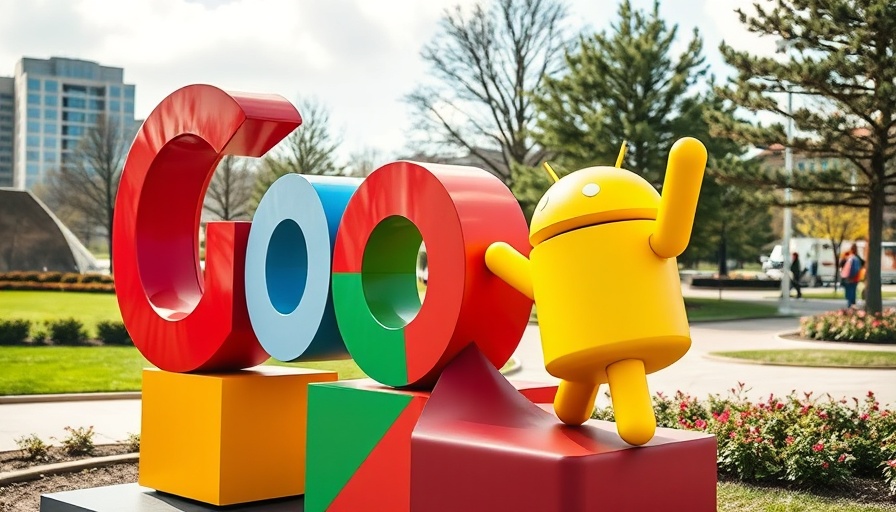
Navigating the New Age of AI: Google’s Gemini Personalized Assistance
As artificial intelligence continues to redefine the digital landscape, Google has taken pioneering steps with the latest version of its Gemini personal AI assistant. This experimental update harnesses the power of user search history to enhance the personalization of AI responses, transitioning from a mere tool to a more intuitive companion that caters to individual preferences.
Unlocking the Power of Personalization with Gemini
Google's Gemini integrates advanced personalization features that utilize a user's search history. When activated, this feature allows the assistant to deliver tailored recommendations based on past searches, presenting users with contextual and relevant responses that feel uniquely crafted. For instance, planning a vacation or seeking dining suggestions now becomes an effortless experience as Gemini uses historical data to inform its answers.
While this update primarily targets desktop users, it is gradually rolling out to mobile platforms. As one learns about Gemini’s capabilities, it becomes clear that its unique advantage over competitors like ChatGPT lies in its seamless integration with Google’s extensive ecosystem of applications. By connecting with platforms such as Google Photos and YouTube, Gemini can offer insights drawn from varied user activities, creating a comprehensive digital assistant.
How Does It Work? Understanding the Personalization Mechanics
To benefit from this feature, users must opt in by selecting “Personalization (experimental)” from the settings menu. Importantly, this is not a mandatory change; the personalization feature requires user consent to access search history and previous interactions.
As Google explains, users can enhance the relevance of responses by sharing personal details such as dietary preferences or family names. This opt-in architecture signifies Google’s careful approach to user privacy, a necessary consideration amidst growing concerns surrounding data security.
Is Google Making a Move Towards a New AI Standard?
The integration of personalized responses into AI assistants raises an important question: Are traditional search engines transforming into proactive personal companions? This blurring of lines spells an evolution for digital interaction, potentially leading to fewer clicks needed for information retrieval. From an SEO perspective, this evolution introduces new dynamics for businesses and marketers who must adapt to a landscape where direct traffic may wane due to AI’s ability to answer user queries directly.
Existing privacy concerns may lead to a reluctance in making this personalization feature an automatic setting in the future. However, there is a clear trend point: as users become accustomed to personalized assistance, the pressure for publishers to adapt to these changes will intensify.
What Gives Google an Edge in AI Personalization?
Leveraging vast amounts of data accumulated from search histories and user interactions gives Google a competitive edge. As referenced by various outlets, this unique access means Gemini could outperform competitors who do not have real-time access to user data. The result is not only more accurate responses but a more engaging user experience that anticipates needs rather than merely reacting to inquiries.
Future Implications for Businesses and Marketers
This shift in how users interact with AI technologies illuminates broader implications for businesses and marketers. Understanding user behavior through data-driven insights will be crucial. As marketing professionals assess the functionality of Gemini, considerations for personalization will drive strategies moving forward. This context could lead to a significant transformation in how audiences are reached.
Moreover, as users lean towards AI capabilities that learn and adapt, companies must prioritize investments in personalization strategies across all digital platforms to remain competitive.
Embracing Change: What Should Marketers Do Now?
Marketers should begin researching AI capabilities deeply, analyzing how personalized AI responses might impact referral traffic. Exploring whether Gemini's responses mask traffic data is imperative for understanding the evolving digital landscape. Collaborating with AI tools and strategies will prepare businesses for the anticipated shift, ensuring they adapt swiftly.
In conclusion, Google’s Gemini illustrates a sizeable technological leap that emphasizes personalization—an essential feature that holds the potential to mold future interactions with AI. As we move forward, CEOs, marketing managers, and industry leaders should remain vigilant about these changes that will significantly shape digital marketing tactics and consumer engagement.
 Add Row
Add Row  Add
Add 




Write A Comment